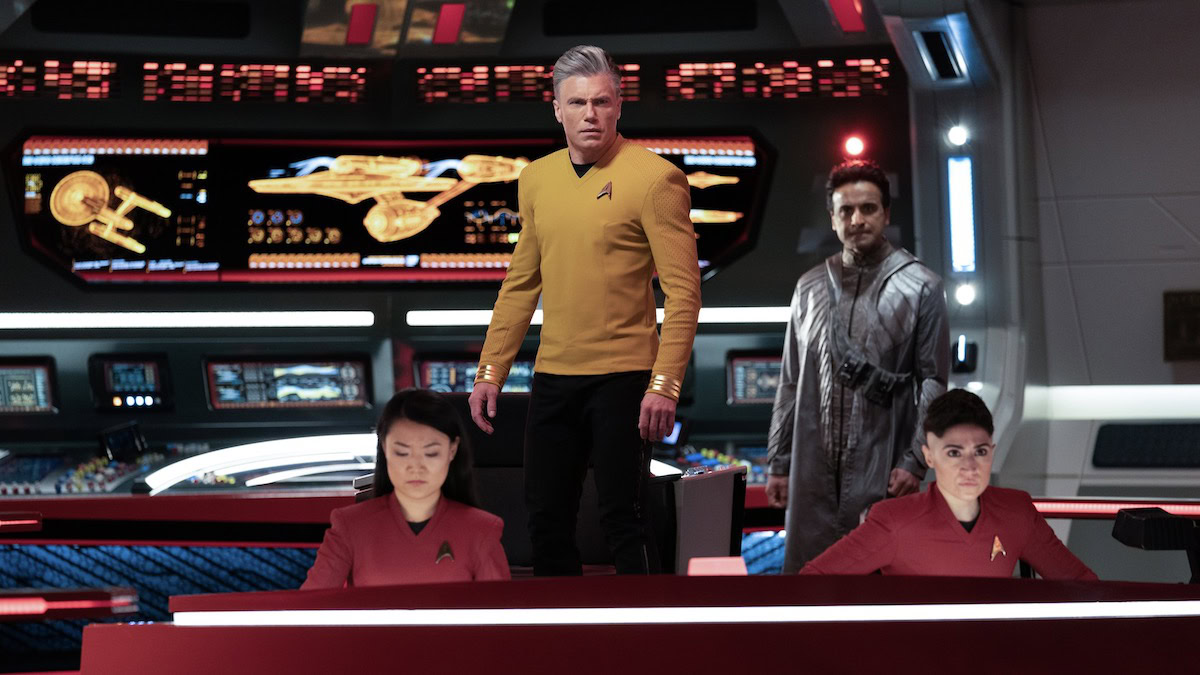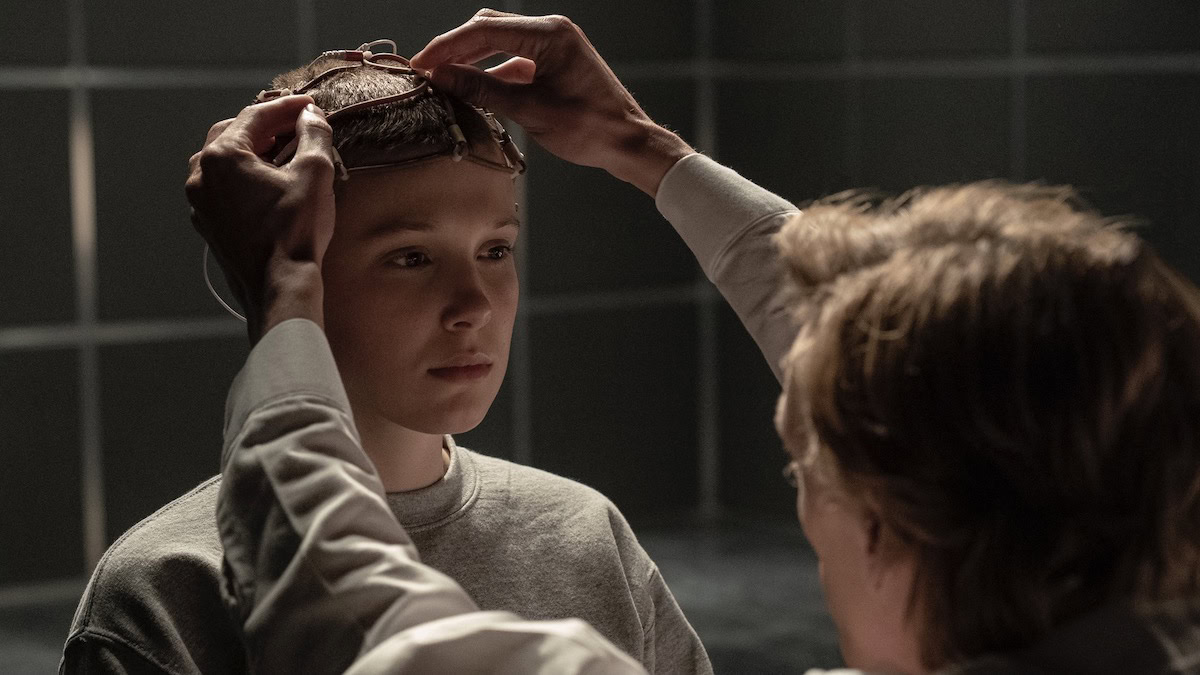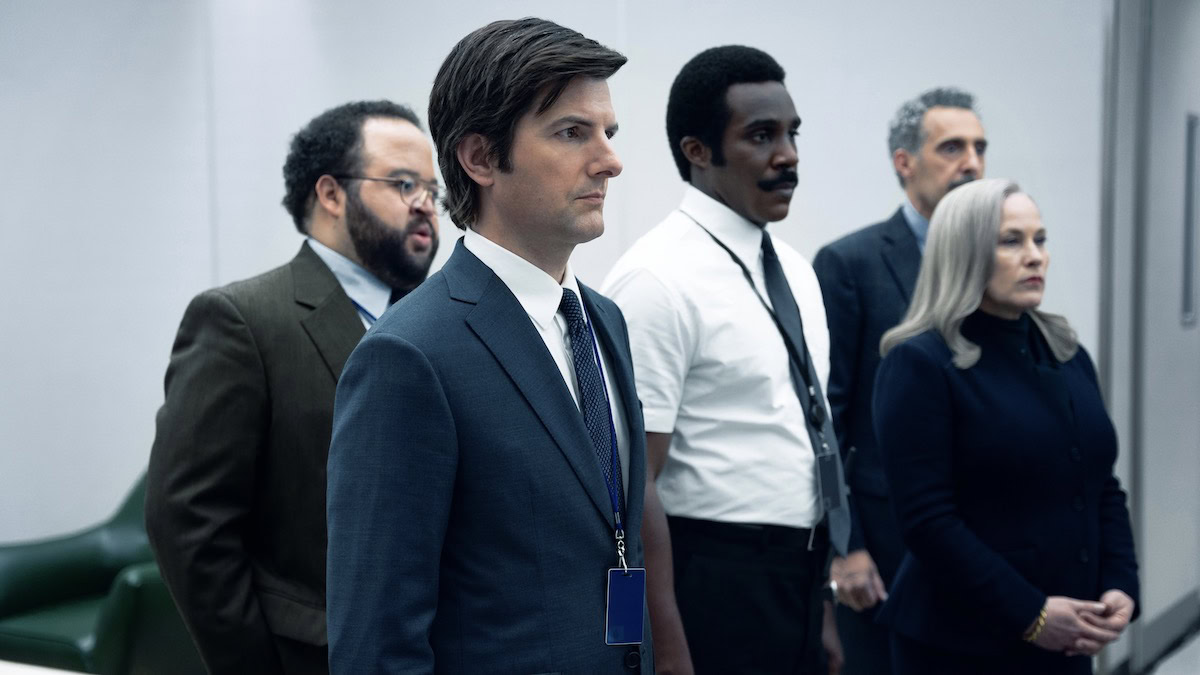Affiliate links on Android Authority may earn us a commission. Learn more.
Weekly TV episode drops are saving the streaming experience for me
Published onJuly 2, 2022

We’re truly living in a golden age of television. Beyond quality, there’s just a staggering amount of TV, with titles for every taste under the sun. With the rise of streaming, we also have virtually unlimited access, allowing us to watch what we want when we want how we want. It may sound counterintuitive, then, to say that I want less choice at my fingertips. I want a more controlled stream of content coming to my screen. To that end, what I really want is the traditional weekly TV rollout.
See also: The best original streaming shows on every platform
Earlier this month, Android Authority‘s own Rita El Khoury wrote about the freedom that came with letting go of the need to be “part of the cultural conversation” around viral TV hits like Game of Thrones, Stranger Things, and Squid Game. Instead, she watches a select few shows once they’ve finished airing. I suppose I long for a solution to the same problem of excess when I say I want a return to the weekly TV rollout.
Now, to be clear, weekly, episodic rollouts never disappeared. Not really. Cable is still kicking even amid the streaming wars. And even Netflix, the king of the TV binging model, has played with weekly or progressive rollouts. Ozark and Stranger Things have both enjoyed the extra bit of buzz that split seasons can afford with their latest installments.

We all know the binging model. It became normal in the 2000s to watch entire seasons of shows in rapid succession when DVD boxed sets gave us easy access to titles previously only available in syndication, if at all. Don’t have HBO at home? That’s okay, you can rent The Sopranos from your local video store and get caught up in a single weekend. Netflix then became known for giving subscribers access to whole seasons of shows too. The streamer gave shows like Breaking Bad a second life as bingeable blocks of content.
Netflix became known for offering whole seasons of shows like Breaking Bad as bingeable blocks of content.
Netflix really turned heads when it released its brand new original series House of Cards in 2013. This wasn’t an existing show that people could catch up with because they’d missed its original run. It was new, and it was available all at once. On Friday, February 1, 2013, everyone (in most markets where Netflix operated) had access to all 13 episodes. You could space them out and watch them weekly. But you could also binge at your leisure, watching the whole thing to be ready to discuss the finale around the water cooler by Monday. And a lot of people did just that.
The full-season drop looked like the future of television at first, or at least the future of streaming. Why wait when you can have it all now? Netflix has recreated the model again and again, with other massive hits like Orange Is the New Black, Stranger Things, The Umbrella Academy, The Witcher, and more.

Despite its popularity, though, the binging model hasn’t taken over.
Netflix is somewhat alone in favoring it. HBO Max, Hulu, and Disney Plus usually go weekly. Apple TV Plus, which only puts out originals, is also a weekly TV haven. Apple has pioneered a system of launching shows with two or three-episode initial drops before settling into weekly releases.
Call it a compromise. Audiences can get hooked on excellent shows like For All Mankind, Severance, Servant, and more with an initial mini-binge, and then settle into a more structured release format.
Apple TV Plus has mastered the hybrid rollout strategy.
Every current Star Trek show streams on Paramount Plus. They all follow the traditional weekly model too.
Star Trek: Strange New Worlds has even gone a step further and is returning Star Trek to its original, more episodic roots. Each episode presents a standalone adventure. There are ongoing plot threads across the season, no doubt, and character growth across longer arcs. This has always been part of Trek. But there’s also a sense of completion with each new episode. (Arguably, Lower Decks beat them to the punch, but the animated series doesn’t feel as tuned into the current Star Trek expanded universe that includes Discovery and Picard.)

So, what’s the advantage? Why do I gravitate to the weekly rollout model over the all-you-can-eat buffet that is TV binge viewing?
Well, it’s kind of the opposite impulse of my colleague Rita. While I’m similarly overwhelmed by the huge amount of stuff to watch, I do want to feel like I’m part of the larger conversation on platforms like Twitter. (At least, I want to be part of it right up until I want to throw my phone into the ocean from, well, spending too much time on Twitter.) It’s hard to participate when people are binging at their own pace, though. Even if I block off enough time to watch all of the latest season of Stranger Things in one or two sittings, I won’t know who’s caught up and who isn’t. I don’t want to spoil a major event for anyone. I also don’t want to have endless exchanges about which episode everyone is on to make sure we’re all talking about stuff everyone has seen. What I want is that old water cooler feeling. “Did you see the new episode of Strange New Worlds?” I might ask a colleague on Friday morning.
Weekly TV stretches out the conversation and makes TV a communal experience.
Enter weekly TV.
There’s a palpable energy on Twitter every Wednesday, after a new episode of Ms. Marvel airs on Disney Plus. That was the case each week when a new Obi-Wan Kenobi episode hit the streamer. Mondays after new Game of Thrones episodes were amazing on Twitter too, once upon a time. It’s a simple concept, and an old one. It means we can spend weeks or months savoring a show we love, talking about it, making predictions, and getting pumped up as a group.
At its best, it’s truly intoxicating. Despite major viewer numbers reported by Netflix, shows like Stranger Things, Ozark, or The Lincoln Lawyer never seem to generate a ton of talk. And when they do, it’s pretty short-lived. That’s baked into binging, unfortunately. Imagine if we’d all been watching new episodes of Squid Game together, waiting with bated breath as a global audience. The magic of the Korean sleeper hit would have increased five-fold, easily.
TV is such an isolated, solitary activity, but it doesn’t have to be. Why not make it a social event? Appointment viewing narrows your options down and lets you be a part of something bigger.